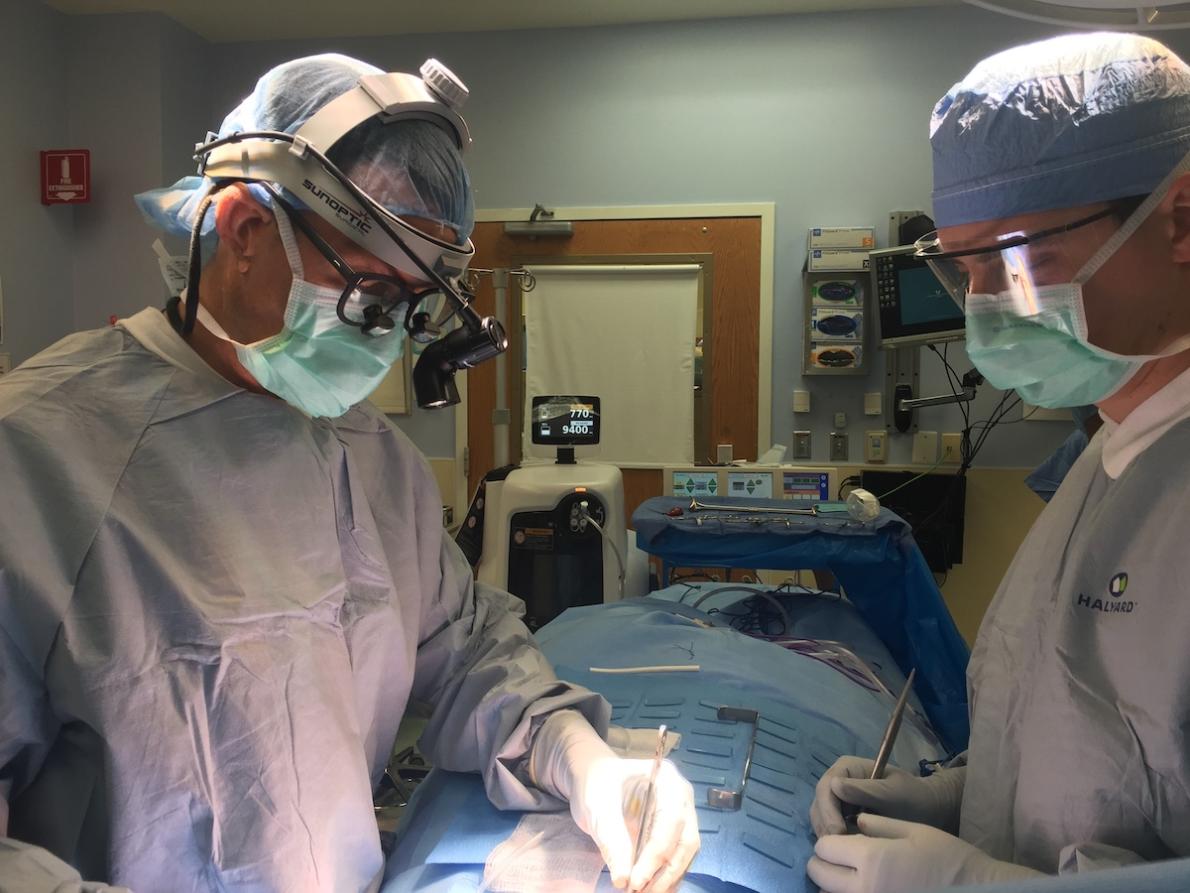Alumni Spotlight: Thomas Pilkington, MD

Thomas Pilkington, MD, completed his otolaryngology residency at Duke in 2009 and joined Arlington ENT Associates the same year. He’s been with them since, practicing all aspects of otolaryngology. He also serves as chief of the otolaryngology department at Virginia Hospital Center.
Dr. Pilkington joined us to reflect on his time at Duke and how that influenced his career.
Why did you decide private practice was the best career for you?
When I started at Duke in 2005, it was a much smaller group than it is now. There were six faculty members, including the chair Joseph Farmer, and Sam Fisher and Deb Tucci. Since there were only six faculty members, the residents were all really close to them. So even though it was Duke, an academic powerhouse, it had the feel of a smaller practice. We got experience in the whole breadth of the specialty. We had a very community-oriented practice in a major head and neck center. I think that's why I was drawn into a private-practice community otolaryngology setting, because I got a lot of hands-on in all the specialties and I really liked doing all of it. My two other classmates that I graduated with also went into private practice.
How did your experience at Duke help instill community-oriented values in you and your practice?
Duke is a big place but has a small-town feel because it’s located in Durham. Joe Farmer and Sam Fisher were lifelong Duke people, and they loved Duke and Durham. You just felt that when you worked with them and talked to them — that was their home. It was a special place. And that's something I wanted to recreate.
Professionally, I serve patients who have otolaryngology needs at the Arlington Free Clinic. We evaluate patients, and then if they need to, we can operate on them at the hospital. I've been working with the free clinic for the past 14 years.
Outside of work, I teach religion at my church and I coached my kids’ basketball and baseball teams for many years. It's a great way to be a part of my kids’ lives, to help coach and teach them. It's been very rewarding.
Why is working with the community important to you?
It's all about relationships. One of the great things about practicing medicine is that it's not just a job. It's constant interaction with people. I find that interacting with people is the best way to make things happen. In the hospital, I host quarterly meetings with all the other otolaryngologists. We review difficult cases in an M&M format. I also work with the hospital credentialing committee, on which every specialty is represented. It’s very collegial.
How did your experience at Duke help you succeed in the setting you're in now?
I had two distinct experiences at Duke, because I was there during a period of transition. In my third year, Ray Esclamado became the new chair and the division grew. And now with Howard Francis, it's just continued to expand. I had that very small-town community experience to start and then it became a more research-based, academic program. I got to see how both worked. The comprehensive training left me well-prepared surgically to manage a variety of ENT issues and build a thriving community practice.
Who were your mentors during your residency?
I had two mentors: Sam Fisher and Deb Tucci. For a while, I was considering becoming a neuro-otologist, which was Deb’s specialty so I worked very closely with her. Ultimately, as I got to the end of my residency, I decided I wanted to do a more broad-based private practice. She was completely supportive, because she is just a wonderful person. She was also helpful because her husband was a neurologist, and my wife's a physician, and she helped us understand how a two-physician family could work.
And then Sam Fisher was always very good about wanting to know what we were up to outside of the hospital. He would have us over for dinner and make sure that things were okay. So I had two different types of mentor relationships, but both were really valuable.
How has your connection with Duke continued?
Through connections with people I've worked with and graduated with, I keep up with what’s happening at Duke. I am still in touch with several of the residents I trained with; specifically, my chief resident when I was a second year, Mike Beasley, is a very good friend. And the department is very good about email and correspondence, too.
Why should a medical student choose Duke for residency?
I think the strongest part about Duke is that it’s a major academic medical center with strengths in all fields. But it also sits in such a unique location — the Triangle is a wonderful place to live. Duke is somewhere you can go to get world-class training, but also live. My wife and I loved living there. It was such a great experience.